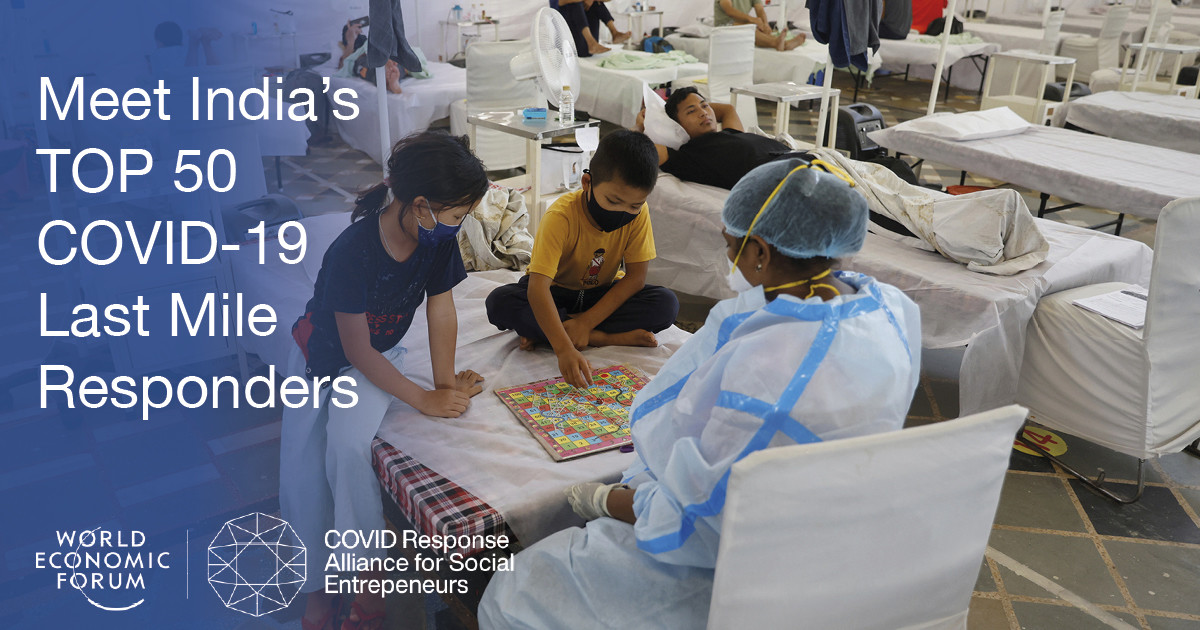COVID-19: What you need to know about the coronavirus pandemic on 13 September

Schools have reopened on a trial basis in Indonesia.
Image: via REUTERS
Explore and monitor how COVID-19 is affecting economies, industries and global issues
Stay up to date:
COVID-19
- This daily round-up brings you a selection of the latest news and updates on the COVID-19 coronavirus pandemic, as well as tips and tools to help you stay informed and protected.
- Top stories: Germany launches week-long vaccination drive; US studies suggest vaccines hold strong against Delta variant; South Africa set to ease COVID-19 restrictions.
Accept our marketing cookies to access this content.
These cookies are currently disabled in your browser.
1. How COVID-19 is affecting the globe
Confirmed cases of COVID-19 have passed 224.6 million globally, according to Johns Hopkins University. The number of confirmed deaths stands at more than 4.63 million. More than 5.7 billion vaccination doses have been administered globally, according to Our World in Data.
The Australian state of New South Wales reported 1,257 new confirmed locally acquired COVID-19 cases today, down from 1,262 the day before.
New Zealand has extended a strict lockdown in Auckland for at least another week in an effort to prevent small clusters of COVID-19 from spreading further.
It comes as New Zealand announced it has purchased 500,000 doses of the Pfizer/BioNTech COVID-19 vaccine from Denmark.
Australia has also purchased an additional 1 million doses of the Moderna COVID-19 vaccine from the European Union.
South Africa is set to ease its COVID-19 restrictions and shorten a nationwide curfew after a decline in infections.
South Africa's health regulator has also approved Pfizer/BioNTech's COVID-19 vaccine for use in children aged 12 and over.
Novavax announced on Friday it expects at least 2 billion doses of its COVID-19 vaccine to be available next year.
Germany's vaccine oversight body has recommended that women who are pregnant or breastfeeding should be vaccinated against COVID-19 with an mRNA-based shot.
Some of the world's poorest countries have asked for more support to meet vaccination and quarantine requirements and costs so they can take part in the COP26 climate summit in Scotland.
2. Germany launches week-long vaccine push
German Chancellor Angela Merkel has called on residents to take advantage of a week-long COVID-19 vaccination campaign. Free jabs will be available at places such as shops, football grounds and mosques.
"Never was it simpler to get a vaccination. Never has it been quicker," Merkel said in her weekly podcast, adding people could from Monday get a dose without an appointment on public transport and at places of worship and sports facilities.
There are concerns that the country's vaccination rate of around 62% will not be enough to prevent a wave of infections over the winter.
"To get through autumn and winter, we must convince more people to get vaccinated," Merkel said. "I ask you: protect yourself and other people. Get vaccinated."
India’s leading COVID-19 last-mile responders
3. COVID-19 vaccines hold strong against Delta
Three US studies suggest that COVID-19 vaccines continue to offer strong protection against hospitalization and death, even against the highly transmissible Delta variant.
However, the studies did suggest that protection appears to be waning among older populations - especially people aged 75 and above.
Data on hospitalization from nine US states during the period when Delta was the dominant variant showed that Moderna's COVID-19 vaccine was 95% effective at preventing hospitalization, compared with 80% for Pfizer and 60% for Johnson & Johnson.
Don't miss any update on this topic
Create a free account and access your personalized content collection with our latest publications and analyses.
License and Republishing
World Economic Forum articles may be republished in accordance with the Creative Commons Attribution-NonCommercial-NoDerivatives 4.0 International Public License, and in accordance with our Terms of Use.
The views expressed in this article are those of the author alone and not the World Economic Forum.
Forum Stories newsletter
Bringing you weekly curated insights and analysis on the global issues that matter.
More on Health and Healthcare SystemsSee all
Adriana Banozic-Tang and Heng Wang
August 5, 2025
Tom Crowfoot
July 30, 2025
Pranidhi Sawhney and Adam Skali
July 29, 2025
Mohammad Isham Jaafar and Gong Yingying
July 22, 2025
Shyam Bishen
July 17, 2025






